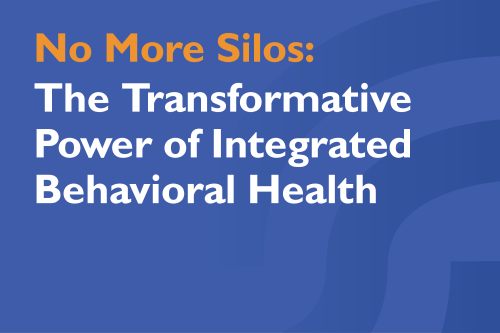No More Silos: The Transformative Power of Integrated Behavioral Health

The artificial separation between physical and mental health no longer serves patients effectively. Conditions like diabetes, heart disease, and chronic pain frequently coexist with anxiety, depression, and substance use disorders, yet traditional healthcare systems continue to treat these aspects of health separately. Integrated Behavioral Health offers a revolutionary solution by reimagining a care system where mental and physical treatments work together seamlessly, transforming the entire patient experience.
Understanding Integrated Behavioral Health Models
Integrated Behavioral Health refers to a comprehensive care model where behavioral health providers (therapists, psychologists, and substance use counselors) become fully embedded within medical care teams. This approach creates shared workflows, unified patient records, and collaborative decision-making processes.
Rather than operating in silos, medical and behavioral health providers work side-by-side, in the same clinic or care setting, to address the physical, emotional, and psychological needs of each patient.
Core Components of Effective Integrated Behavioral Health
The successful implementation relies on several key features:
- One team, one plan: Providers share information, coordinate care plans, and communicate regularly.
- Unified documentation: Mental and physical health notes exist in the same electronic health record (EHR).
- Warm handoffs: Patients can be introduced directly to behavioral health providers in the same visit.
- No wrong door: Patients can enter through any provider and receive whole-person care.
- Data-Driven Population Management: Data is utilized to identify and manage high-risk patients, and preventative screenings are built into routine care.
Why Integration Matters
Too often, patients with depression, anxiety, trauma, or substance use concerns fall through the cracks because their behavioral health needs remain unrecognized in traditional medical settings. The fully integrated behavioral health approach addresses this by:
- Improving Outcomes: Research consistently shows that integrated care improves patient satisfaction, reduces hospitalizations, and lowers total healthcare costs
- Reducing Stigma: When mental health services are part of routine medical care, they are more accepted and utilized
- Expanding Accessibility: Patients receive help for behavioral health issues without facing long waitlists or requiring separate appointments
Integrated Behavioral Health Success Stories
The fully integrated model delivers tangible benefits as illustrated by these patient scenarios:
- A hypertension patient with chronic stress receives immediate referral during their primary care visit to an onsite behavioral health provider for stress management strategies
- Parents concerned about their child’s behavior meet with a therapist integrated into the pediatric team without enduring a lengthy referral process
- Cancer patients receive counseling from behavioral health clinicians embedded in their oncology care team, improving coping mechanisms and treatment adherence
Challenges and Considerations
While the fully integrated model offers numerous benefits, successful implementation requires:
- Leadership commitment and organizational culture change supporting team-based care
- Training for both medical and behavioral health providers to understand each other’s roles
- Adaptive billing and reimbursement models, particularly for value-based care environments
- Technology alignment, including shared EHR platforms and unified scheduling systems
Financial Sustainability for Integrated Behavioral Health Programs
Maintaining viable Integrated Behavioral Health services requires strategic approaches:
- Utilizing collaborative care billing codes (99492-99494)
- Aligning with accountable care organizations and value-based contracts
- Implementing outcomes measurement tools demonstrating return on investment
Looking Ahead
As healthcare systems increasingly prioritize value-based and preventive care approaches, Integrated Behavioral Health has evolved from a supplementary service to an essential component of effective healthcare delivery. This model meets patients where they are, treats the whole person, and bridges the traditional gap between body and mind.
Investing in Integrated Behavioral Health represents not just good clinical practice—it’s good medicine.
Ready to upgrade your clinical practice? SimiTree has experts ready to assist with your integration!
Author: Anthony Motsinger, PhD, LCSW

